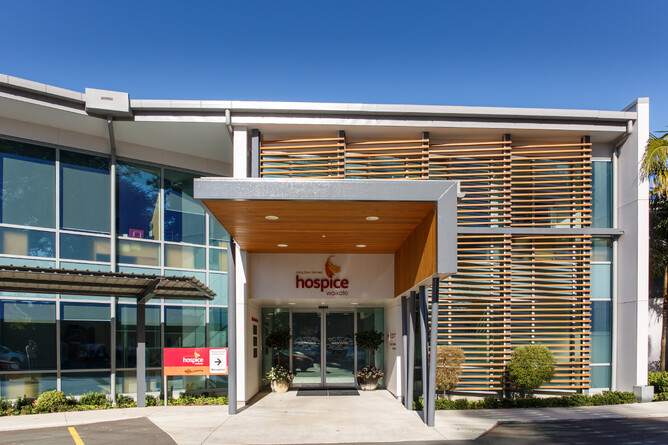When Vikki Blundell was living overseas in Peru, she took a phone call no parent would ever want to receive. Her 22-year-old son, Ryan was calling to say he had terminal liver cancer.
Immediately returning to New Zealand in the middle of the 2020 global lockdown, after two weeks of quarantine, she moved Ryan out of his flatting situation and into her accommodation so that she could look after him.
“I couldn’t have looked after Ryan if Hospice Waikato wasn’t there. It’s as simple as that.”
At first Ryan could still look after himself, but as he got sicker, the Hospice Waikato nurses would come more frequently and very quickly they built strong relationships with Ryan and his family.
The nurses would liaise on behalf of Ryan with the medical team to discuss treatment and medication options, alleviating Vikki of that burden. They would then present Ryan with options for medication and he would be able to choose for himself. A seemingly small thing, being able to choose helped Ryan to feel like he was in control and still had choices available.
Ryan didn’t want to know how long he had to live, so the family never knew how much time they had left together. Vikki took comfort knowing that with Hospice Waikato’s support, she wouldn’t have to worry about the steps that needed to be taken after Ryan’s death, she could simply be there with him in the moment.
Reflecting on Ryan’s last few weeks, Vikki says that there were two things that Ryan didn’t want; to die in hospital and to live a life not worth living.
“Ryan didn’t talk much about his final days but upon reading his diary after he died, we discovered that one of his fears was being alive in a life not worth living. Which to me means, he wanted to be able to maintain his sense of dignity. By us being able to look after him, he was able to die with his family around him at home and that is what he wanted.
“If it wasn’t for Hospice Waikato Ryan would have died in hospital. With the support we received from them, we were able to help him live life on his terms right up until he took his last breath. It was perfect, it couldn’t have been better under the circumstances.”
The importance of dying well
Ryan and Vikki’s story would not be possible without the support of essential, holistic palliative care services such as those offered by Hospice Waikato. With death being an experience that will affect us all, strangely the dying process is not something that is given any clear framework by Te Whatu Ora, whose four key areas focus on the first 2000 days, living well, aging well, and being mentally well.
“It’s remarkable that dying well is not being prioritised by New Zealand’s health service,” says Hospice Waikato’s Chief Executive Officer, Craig Tamblyn.
“We know that the New Zealand health sector is stretched but by not prioritising the death process by underfunding palliative care services, such as Hospice Waikato, it puts even more strain on the system.”
In the run up to the election, Hospice Waikato is asking politicians to remember how important a dignified death is.
“Whichever party ends up in power after the votes are counted has to take a serious look at the way funding for New Zealand’s palliative care services is calculated,” confirms Tamblyn. “It’s vital that Te Whatu Ora prioritises death as one of the life phases that we need to do well.”
An uncertain future
With a commitment to keeping their services free for those who need them, and with the Government funding approximately 70% of their core service delivery costs each year, Hospice Waikato generates funds from their own second-hand retail shops, and from the generosity of individuals, community groups, businesses and community funders, and the wider community who support their fundraising activities.
While Hospice Waikato’s services are free of charge to everyone who needs them, this essential and valued service is extremely expensive to deliver. Last year, it cost over $13.5 million to provide free hospice care across the Waikato region. While the government provided $92.1 million nationally, regional Hospices across New Zealand have had to raise over $94 million from their communities to bridge the gap.
In today’s climate of cost-of-living pressure and high inflation, “$94 million is a near impossible amount to be expected to raise from selling second hand jumpers and running charity events,” explains Tamblyn.
With people and businesses struggling, the hospice retail stores lose out on their revenue because of economic conditions, creating a desperately precarious financial situation for Hospice Waikato.
“It’s completely unreasonable to think that our communities should shoulder the financial burden of covering the funding gap for essential palliative care.”
Embracing life’s journey until the end
Vikki Blundell was able to walk alongside her son on his dying journey. She doesn’t even want to imagine what it would have been like if she couldn’t have done that.
“In my memories of Ryan, I don’t have any angst or pain around what could have happened or didn’t happen, because everything happened beautifully. I know there are situations where people don’t get to have the same experience that I had with Ryan, and for that, I am so deeply grateful to Hospice Waikato. Without them, none of that could have happened.
“Just because someone is palliative, it doesn’t mean their life is over. They’re still alive. A huge amount of living can happen in the last months of life, and Ryan’s an example of that”.

